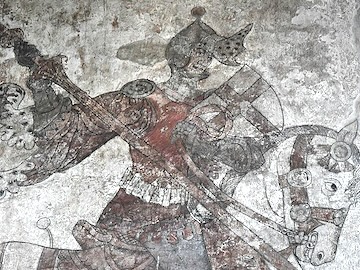English Literacy Inspired by the Vision of NL Clay
Clay Lane is a website for people who care deeply about the language and heritage of the English people, and who want to know more about them because they understand how important these things are for our future. It is inspired by textbooks written by Yorkshire schoolmaster NL Clay, and used in English schools and homes from the 1920s to the 1960s. Clay Lane is ideal for those who prefer traditional methods, traditional content, and the option of one-to-one human contact.
Read famous (and not so famous) passages from history, legend, biography, politics, poetry and fiction, and try your hand at exercises similar to those Clay gave to pupils in secondary schools before the educational changes of the 1960s. Use what you find here to improve your command of good, clear, correctly spelled and punctuated English, or just browse for pleasure.
Everything on Clay Lane is free to use. Share your creativity with me, and if you’d like a little help, just ask. See Email Support.
“The course should train pupils to observe, learn more of the world they live in, think clearly, use the imagination and to speak clearly.”
NL Clay, Think and Speak (1929)
Featured Music
John Field: Piano Sonata in E-Flat Major, Op. 1 No. 1: II. Rondo. Allegretto
Media not showing? Let me know!
Read more about this music
Find more music on The Clay Lane Blog
Featured Post
From Fuel of Freedom
When we consider that in the coal raised in Great Britain alone in 1876 an amount of energy was contained equal to the labour of more than 3,000,000,000 adult slaves labouring daily throughout the year we may well understand how it is that human slavery has so utterly died out in all civilised, that is, all coal-using, countries since 1778.
Read
Featured Exercise
Verb and Noun Find in Think and Speak
Many words can serve as noun or verb depending on context: see if you can prove this with the examples below. Nouns go well with words such as the/a, or his/her; verbs go well after I/you/he etc..
1 Sandwich. 2 Abuse. 3 Buy. 4 Finance. 5 Shame. 6 Lift. 7 Make. 8 Call. 9 Wonder.
Variations: 1.if possible, use your noun in the plural, e.g. cat → cats. 2.use your verb in a past form, e.g. go → went. 3.use your noun in a sentence with one of these words: any, enough, fewer, less, no, some.












